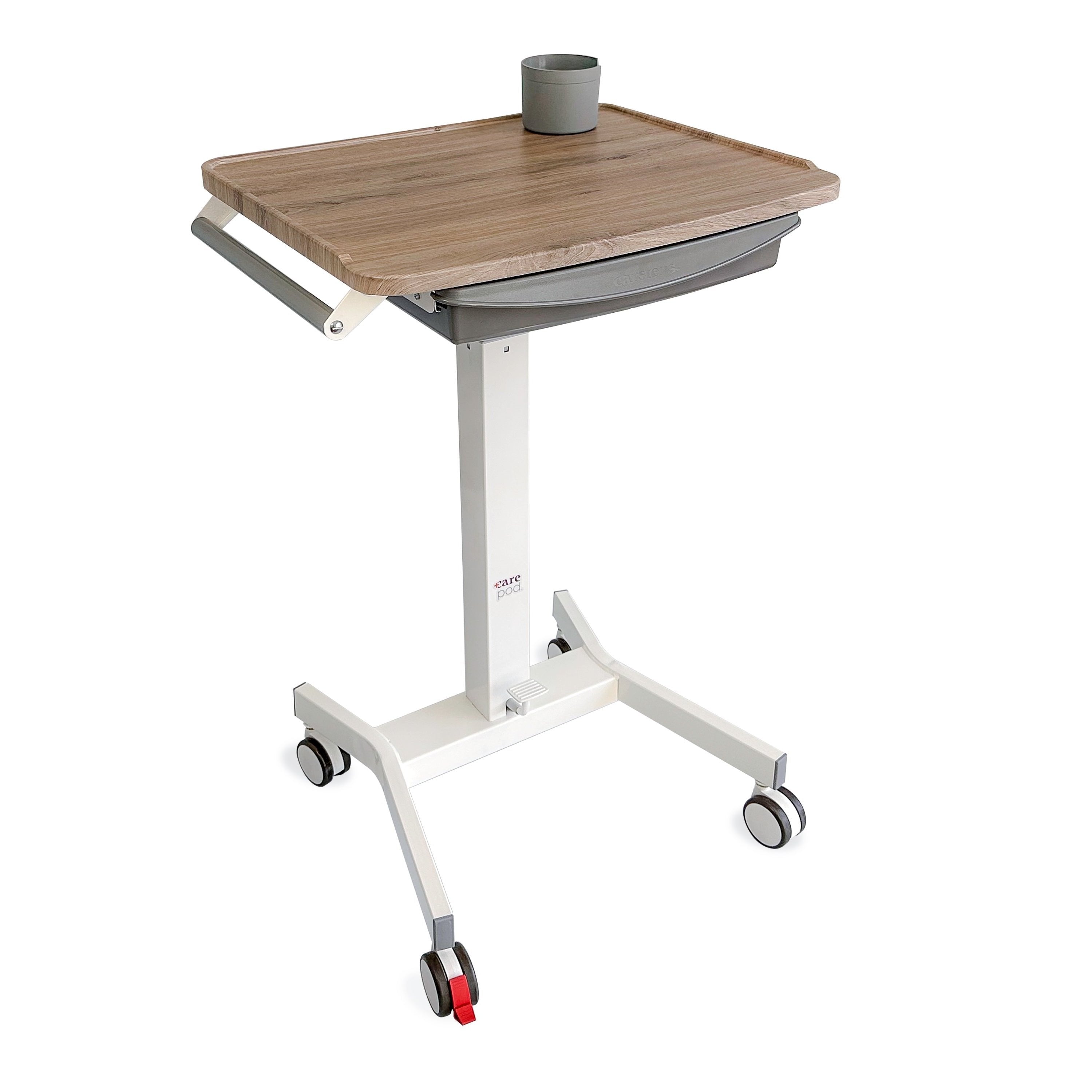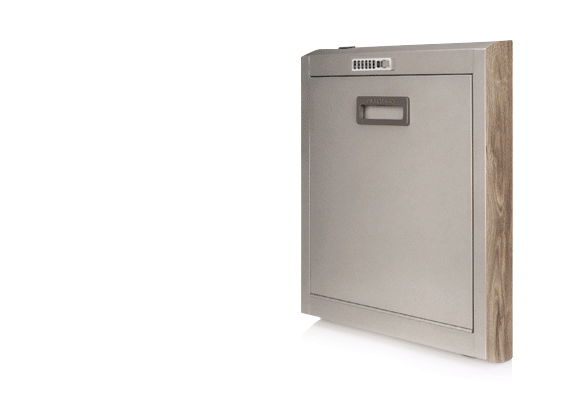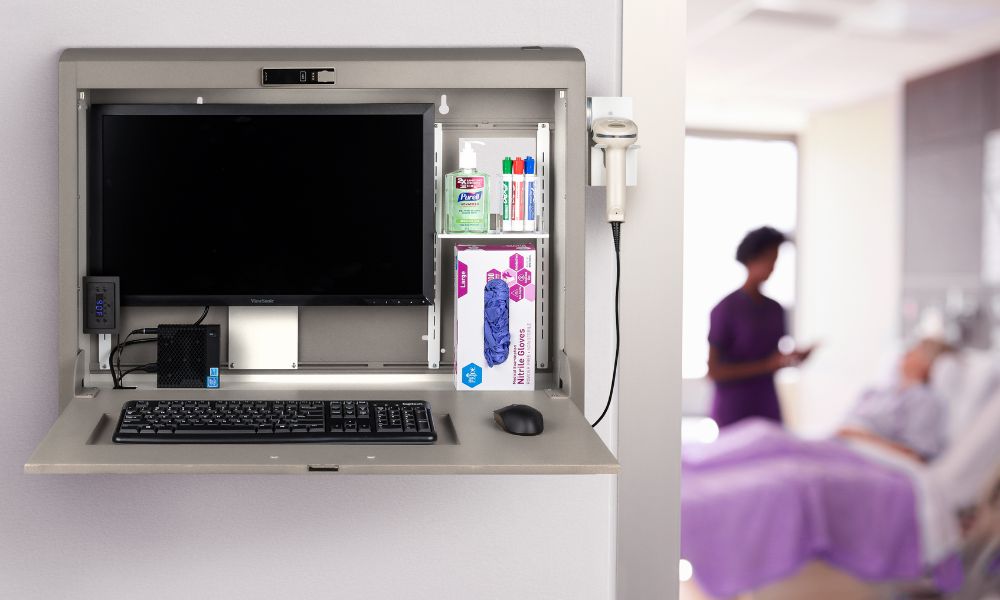The daily life of a nurse or caretaker is strenuous, active, and, some days, quite chaotic. Hospitals and healthcare facilities must equip their staff with the proper tools to support and improve their performance while on the clock. For example, medical professionals with access to quality workstations throughout their workplace are more productive and more capable of providing excellent care. As such, understanding how to choose the right medical computer workstation for your practice is an essential step toward optimizing your clinic’s space. Learn more about the different types of medical workstations, desirable features, and ergonomic elements worth considering when purchasing healthcare products.
Determine the Ideal Workstation Type
The first step in selecting the perfect computer workstation is to find a product type that fits your application and needs. While designs and functions vary from brand to brand, the two most common workstation types found throughout many healthcare clinics are laptop/medical PC carts and wall-mounted cabinet desks. Both mobile carts and mounted desks offer medical practices advantages and drawbacks. Read on to learn more about each type of workstation to determine the better purchase for you.
Laptop & Medical PC Carts
Nurses and other healthcare professionals across the industry trust mobile computer carts due to their versatility and convenience. These products offer worksurfaces of all different shapes and sizes to meet the specific requirements of your corridors, offices, and exam rooms. Most importantly, laptops and medical PC carts feature wheels for increased portability throughout the healthcare clinic.
Depending on the product, these carts can easily carry a nurse’s essential equipment and resources from room to room throughout their shift. Plus, mobile carts are often more affordable than mountable cabinet desks. However, these items are not without faults. Mainly, laptops and medical PC carts still take up valuable floor space, regardless of their current location. Additionally, carts cannot store the same amount of supplies and resources as mounted workstations.
Wall-Mounted Cabinet Desks
Wall-mounted cabinet desks are the ultimate workstation solution for healthcare practices of any size. These products fit into exam rooms, offices, and corridors with ease. Most importantly, they hang from the wall, leaving more floor space for storage or reduced hallway traffic. A nurse or other medical professional can easily store technology, tools, resources, medicines, and more in a convenient, “out-of-site” location with a cabinet desk.
Furthermore, these essential items can remain secure thanks to the workstation’s built-in locking system. Depending on the height, a wall-mounted workstation doesn’t even require a chair, further optimizing your medical practice space. Our team at Carstens even carries 4" medical office wall cabinets that are among the only corridor-approved workstations available on the market today. Of course, the one major downside associated with these workstations is their immobility.
Ergonomic Elements & Considerations
Now that you know which type of workstation is ideal for you and your needs, it’s time to consider one of the most important aspects when shopping for workplace furniture: ergonomics. Injuries stemming from poorly-designed furniture and equipment are a massive burden for individuals, businesses, and the healthcare industry as a whole.
A Brief Overview of Ergonomic Injuries in Healthcare
Ergonomic injuries—primarily impacting nerves, tissues, bones, muscles, and tendons—are a significant concern among nurses and caretakers in dynamic healthcare environments. The most common workplace-caused afflictions include lower back pain, carpal tunnel syndrome, tendinitis, neck and shoulder complications, tennis elbow, and more.
Unfortunately, prolonged exposure to ergonomically-poor furniture and equipment can turn these small injuries into chronic, life-long health concerns. Since nurses and caretakers spend most of their days on their feet or at a medical workstation, their bodies experience more stressful positions, increasing the chances of an ergonomic injury. In fact, these specific health concerns account for over $20 billion in workers’ compensation every single year.
What Is an “Ergonomic” Workstation?
So, how can you identify an ergonomic workstation to support your medical staff better? First and foremost, adjustment mechanisms such as height increasers allow individuals to optimize their workstations relative to their body’s needs. This element is especially crucial for shared laptop and PC carts. Note that a taller height is beneficial when transporting carts to avoid back and neck stress, while shorter lengths are ideal for clinical work in the exam room or office.
As for cabinet desks, it’s essential that you identify the most comfortable height when mounting the product. Other examples of quality ergonomic features include monitor and keyboard swivels, wheel casters, adjustable shelving, and smooth working surface materials. These ergonomic considerations can save your staff from chronic pain and improve the success of your business overall.
Additional Desirable Features
After identifying an ergonomic product, you can look for additional features to benefit your medical staff. While added elements are not always the main selling point of healthcare furniture and equipment, equipping your nurses and caretakers with the best possible resources is important. Below are a few extra features worth considering when purchasing a medical workstation.
Power or Power Cord Access
Some advanced workstations feature internal power sources that can charge laptops, tablets, and other essential devices when plugged into a wall outlet. Alternatively, many wall-mounted cabinet desks include convenient access points for external power cords. Regardless of your preferred product, having either a well-placed power source in or around your workstation is a worthy element to consider.
Locking Mechanisms
As mentioned before, many wall-mounted cabinet desks offer a range of lock mechanisms from key-and-lock to RFID and other electronic options. This element is especially valuable for workstations located in stores or exam rooms and containing sensitive documents, medications, and more. Conversely, most mobile or fold-down workstations do not need a locking mechanism as they often don’t double as storage devices.
Quality Design
While you must prioritize utility when shopping for a workstation, it’s important to consider how this new furniture will fit within your medical practice’s existing ambiance and décor. Opting for a stylish workstation with multiple materials, colors, and finish options can help elevate your practice’s level of professionalism. In turn, you can increase patient retention.
Choosing the right medical computer workstation can set your nurses and caretakers up for greater success and less workplace stress. Ultimately, it’s worthwhile to consider the opinions of your medical staff when investing in new furniture and equipment. Feel free to ask your employees which types of resources will benefit their roles the best. Additionally, please browse our industry-leading healthcare supplies and tools at Carstens.







